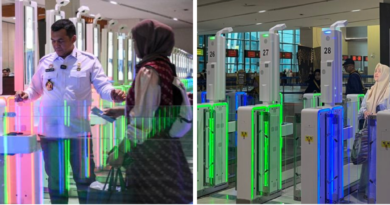US CBP Intercepts Transnational Shipment of Ecstasy, GBL
U.S. Customs and Border Protection officers working at the Washington Dulles International Airport intercepted over two pounds of illegal and controlled substances in five separate mail parcels, August 22.
Upon receiving the cargo shipment with the parcels, CBP officers noted discrepancies in their shipping information and selected the parcels for an examination.
Two of the packages had no declaration information and three other parcels were listed as containing fuel injector cleaner; however when the officers conducted their examination, they discovered nearly 60 grams of Ecstasy in the two parcels without declaration information and almost 970 grams of Gamma-Butyrolactone (GBL) the three other parcels.
“This seizure illustrates our commitment and vigilance to securing our nation from the expansive network of criminals reaching across oceans to inject these illicit narcotics into our communities,” said Casey Durst, CBP’s Director of Field Operations in Baltimore. “CBP’s border security mission is vital to helping keep our nation and our citizens safe and secure.”

Aug. 22 in an international mail parcel arriving
to Washington Dulles International Airports
According to the Drug Enforcement Administration, GBL is a Schedule 1 controlled substance, meaning that it has a high potential for abuse, with no currently accepted medical use in treatment in the United States, and a lack of accepted safety for use under medical supervision. GBL is a chemical precursor in the illicit manufacture of the schedule I controlled substance Gamma-Hydroxybutyric acid (GHB). GBL, also known as Blue Nitro, is an odorless, colorless, central nervous system depressant that has addictive properties and potentially severe health consequences. Sexual predators have used GHB and GBL as a date-rape drug.
CBP officers from the Office of Field Operations lead the agency’s border security mission at the nation’s 328 ports of entry. CBP officers screen international travelers and cargo searching for illicit narcotics, unreported currency, weapons, counterfeit consumer goods, prohibited agriculture, and other illicit products that could potentially harm the American public, U.S. businesses, and our nation’s safety and economic vitality.




